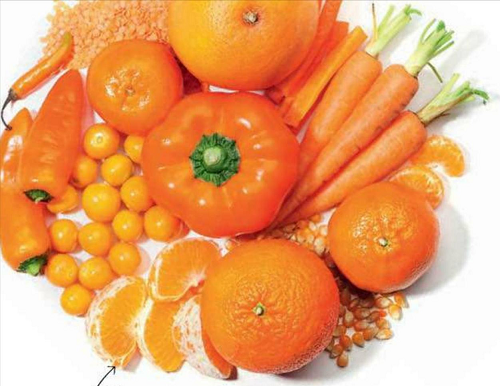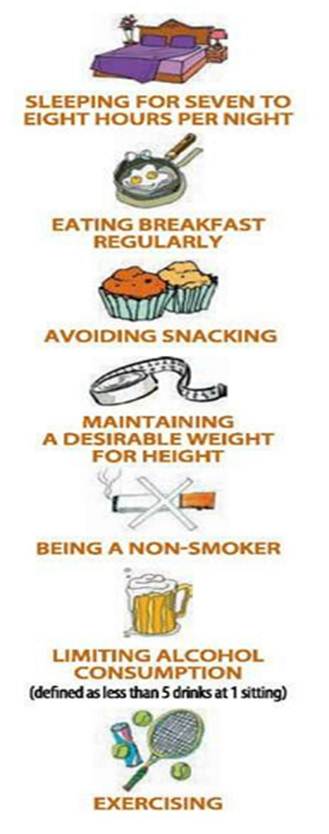By 2009 the average life expectancy for a
man is Australia was 79.3 years, and for a woman it was 83.9 years. That’s a
big difference compared to the late 19th century when men lived just
past 47 and women until about 50.
But while we’re now living longer, we’re
not all living longer and well, with the number of years of disability and
disease later in life on the rise. But it doesn’t have to be that way – here we
uncover some lesser known secrets of ageing well.
Boost your B vitamins to stay smart
As we age the level of an amino acid in our
body called homocysteine rises. Homocysteine causes brain shrinkage and brain
degeneration leading to memory loss, dementia and Alzheimer’s. Research from
the University of Oxford found high doses of B vitamins reduces homocysteine
and may reduce brain shrinkage by up to 53 per cent.
Patrick Holford, author of The 10 Secrets
of Healthy Ageing (Piatkus, $35), says “I test my homocysteine level every two
years. I also take a high potency multi-vitamin containing B6, B12 and folic
acid. You have to take a supplement to get the level of B vitamins you need to
lower homocysteine. “The Recommended Daily Allowance (RDI) of B12 is 1mcg,
which you can get from a couple of eggs or a piece of fish or meat. But the
optimal amount to stop memory loss and brain shrinkage is 10 mcg daily.”
Eat natural anti-inflammatories
Wear and tear on joints is natural, but you
can protect your joints from the level of deterioration that leads to
fractures, osteoporosis and arthritis. Eating plenty of foods with natural
anti-infammatories helps to keep joints healthy, says Holford.
He lists his top four anti-inflammatory
foods as turmeric, olives, red onions and omega-3 fish oils found in salmon and
mackerel.
“Eating an onion a day is associated with a
5 per cent increase in bone mass,” he says. “Spices such as ginger, turmeric,
mustard and chilli are excellent anti-inflammatories, so use them as much as
you can in cooking. You can also take a teaspoon of good quality olive oil
daily as it contains an anti-inflammatory called hydroxytyrosol. All these
foods are excellent for keeping joints healthy.”
Find spiritual peace
The social support provided by a spiritual
practice – no matter which religion – may help us age better, says Dr Lynn Ward
of the School of Psychology at the University of Adelaide. Ward has researches
old age and death and is one of the authors of Lifespan Development (Wiley,
$127.95).
“Religious involvement may provide social
support networks and it impacts via positive relations with others and by
community involvement and a feeling that you are giving back to the community,”
says Ward.
“It addresses perceptions of purpose and
meaning in life, and it may be associated with improved immune function via
stress reduction techniques like meditation, prayer or forgiveness. There is
also evidence that religious involvement protects against depression.”

“Vitamin
A is found in fish and meat and in orange vegetables”
Load up your skin with vitamin A
If you want skin to stay supple, stock up
on vitamin A. It’s a potent antioxidant stored in skin cells, but over time and
due to sun exposure, stores are depleted. “Load your skin with vitamin A – eat
it, supplement it and use a vitamin-A-based skin cream,” recommends Holford.
Vitamin A is found in fish and meat and in
orange vegetables, so eat plenty of squash, carrots, butternut pumpkin or sweet
potato. But the most direct way to feed your skin is to apply a vitamin-A-based
skin cream.
“I use it every day and some studies show
rapid reversal of age spots and wrinkles with the use of transdermal vitamin
A.” says Holford.
See good heath – not declining health –
as a natural part of ageing
Attitudes towards ageing play an important
role in our experience of older age. “People who perceive health problems to be
a normal, inevitable part of ageing are less likely to take preventative care,”
she says. “But those people with positive self-perceptions of ageing adopt more
preventative health behaviors – such as eating a balanced diet, exercising and
following instructions for any medications.”
Ward refers to the international Blue Zones
study that identifies areas where people live longer, healthier lives. The
research has found having the right outlook can be worth up to seven years of
extra life expectancy – referred to as the “why I wake up in the morning” rule.
Having a sense of purpose and empowerment
and doing things you like to do is important.
Fill up on fibre
To maintain a healthy weight, Holford
recommends a diet rich in fibre, particularly soluble fibre that absorbs water.
So fill up on oats, porridge, flax and chia seeds.
“Have a teaspoon pf ground chia seeds with
your oats,” recommended Holford.
“Soluble fibre slows down the release of
sugars in your foods. This makes you feel fuller for longer, reduces appetite
and stabilized blood sugar. The critical point in weight loss is to not feel
hungry. Soluble fibre stops you feeling hungry and craving carbohydrates.”
The Japanese have developed a
“super-soluble fibre” called glucomannan that comes in powder or capsules.
A teaspoon in a glass of water just before
a meal makes you feel fuller and cuts your appetite. It’s also good for
constipation,” says Holford.
Protect your eyes from toxins
Almost 1.5 million Australians aged
55 or over suffer from cataracts, according
to the Australian Institute of Health and Welfare. Cataracts occur when our
eyes come into contact with toxins from things like sunlight, pollution,
cigarette smoke and fried foods. “But increase your intake of antioxidants and
you protect your eye health and lower your risk of cataracts,” says Holford.
Three key nutrient groups protect eye
health: vitamin A; antioxidants such as vitamins C and E; and carotenoids.
These can be found in mustard, turmeric, blueberries, broccoli, spinach,
watermelon, beetroot, tomatoes, and carrots.
“The older you get the more vitamin A you
need for eye health,” says Holford, who recommends a supplement of 4000mcg of
vitamin A daily.
“If you start to have eye problem it’s the
first nutrient you should have more of.”
Follow the Almeda 7
The Almeda 7 refers to seven health habits
that research has linked to a longer, healthier life. The list is named after
Almeda county in the US where the then pioneering research was conducted in
1965, explains Ward.
The seven health habit are:

“People with better health habits at
midlife and into old age tend to live longer, but they also postpone
disability,” says Ward.